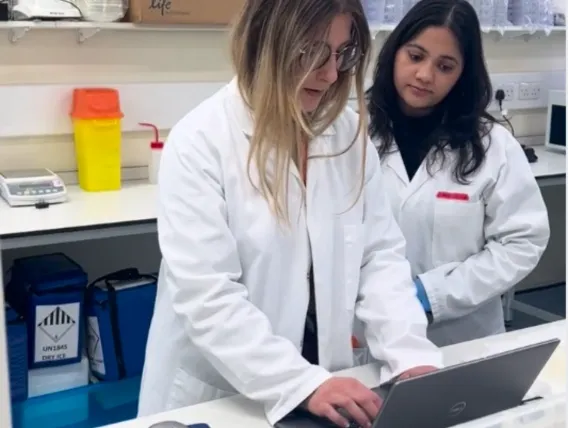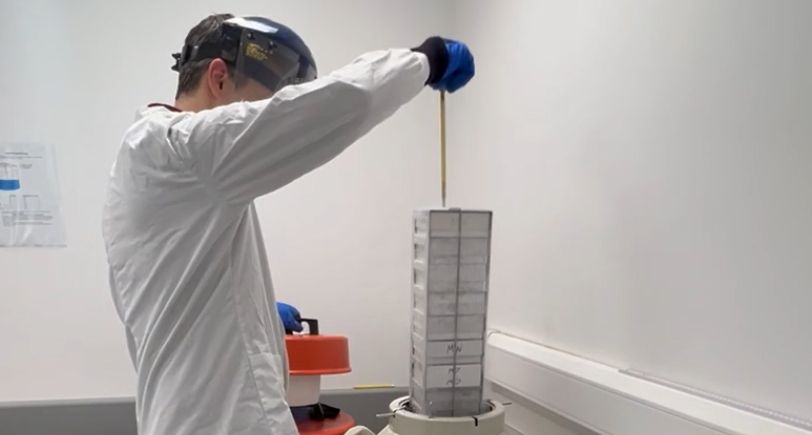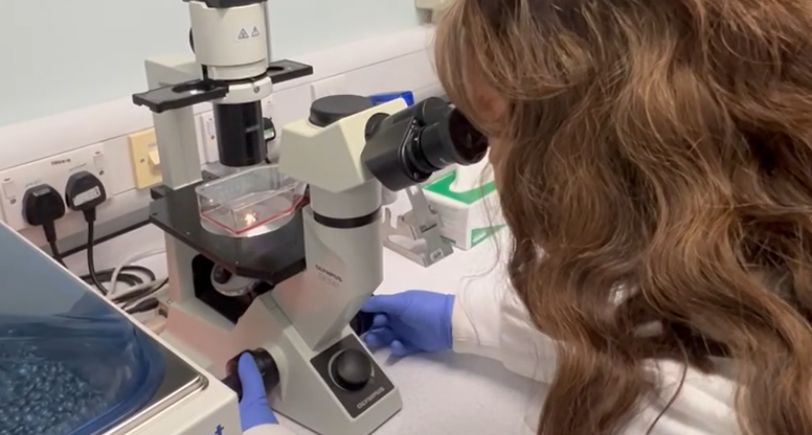Our research.
Learn about current and past research projects.
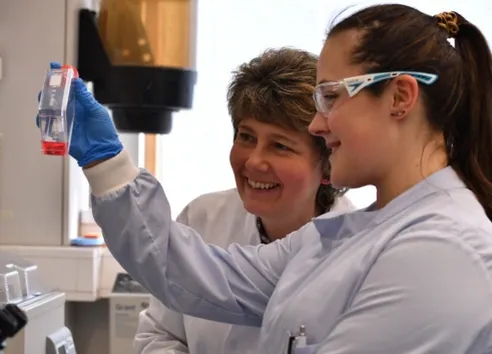
Our research.
We fund world-class, animal-free scientific research on how environmental chemicals, such as Endocrine Disrupting Chemicals (EDCs), contribute to breast cancer risk. Our work helps to strengthen scientific understanding, inform policy, and empower more people to take action to reduce their risk of breast cancer.
Your donations and vital support enable us to fund pioneering research that uncovers the causes of breast cancer. We collaborate with leading scientists to explore how environmental and chemical risk factors may increase breast cancer risk.
Our strategy for our science programme is outlined here.
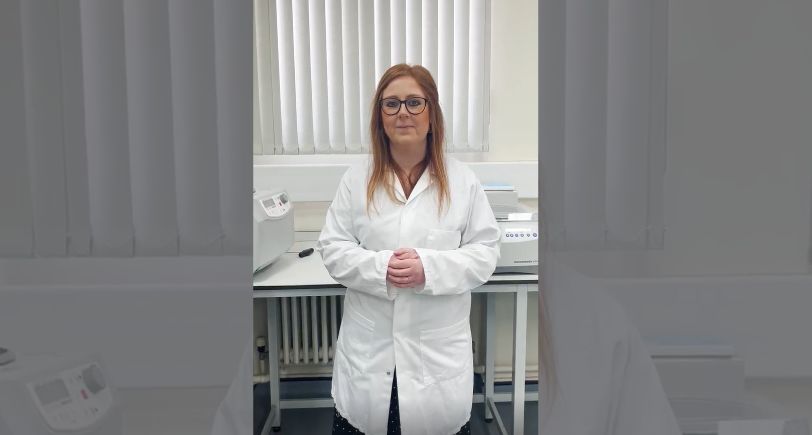
Ask the scientist: Is there a safe amount of alcohol you can drink?
Our current research projects.
Investigating the effects of EDCs on extracellular vesicles in breast cells.
Researchers: Principle investigator Dr Mark Wade and post-doctoral researcher Danielle Marsh, University of Hull – Foundation Award 2025
Aim: Investigate how exposure to EDCs affects the production and content of extracellular vesicles in breast cells and whether this affects breast cancer risk.
Extracellular vesicles are particles that carry molecules (e.g proteins) between cells to help them communicate with each other. This project will first investigate how these particles are affected by EDC exposure in normal and cancerous breast cells. Further studies will confirm whether vesicles that have been exposed to EDCs can cause changes in normal breast cells that would make breast cancer more likely to develop.
Investigating the effects of bisphenols on cancerous and non-cancerous breast tissue using human-relevant models.
Researcher: Dr Anthony Kong, King’s College London – Seed Award 2025
Aim: Assess how exposure to bisphenols alone and in combination affects specific processes within normal and cancerous breast tissue.
This project will use cancerous and non-cancerous human breast tissue to produce 3D models known as patient-derived organoids. These models will be used to understand the changes that exposure to bisphenols may cause to breast cells and whether this affects breast cancer onset and progression. The project will focus specifically on genetic changes and effects on immune cells caused by bisphenol exposure.
Toxic beauty and the breast: Investigating how EDCs affect different cells within breast cancer tissue using human relevant models.
Researcher: Dr Mhairi Morris, Loughborough University – Seed Award 2025
Aim: Understand how exposure to EDCs found in cosmetics affects the communication between different cells of the breast and whether this drives breast cancer progression.
This project will use 3D models produced from human breast cancer tissue known as patient-derived organoids and expose them to various EDCs alone and in combination. How this exposure affects the different cells found in breast tissue and the communication between them will be examined, as well as whether this then accelerates breast cancer progression.
Bisphenols and breast cancer risk: Unravelling the role of adipose tissue.
Researchers: Principle investigator Dr Giorgia Cioccoloni and PhD student Arya Pilani, University of Leeds — Foundation Award 2024
Aim: To enhance the understanding of the relationship between bisphenol exposure, obesity, and breast cancer.
The project will be investigating the processes within cells that could drive breast cancer onset and progression within adipose (fat) tissue, and how it responds to exposure to bisphenols. The research hopes to find better ways to prevent breast cancer by shedding light on how these chemicals affect our health.
Investigating effects of per- and poly-fluoroalkyl (PFAS) substances on breast cancer development.
Researchers: Principle investigator Dr Mark Wade and PhD student Lucie Bilton, University of Hull — Grant Award 2023
Aim: To investigate whether PFAS (“forever chemicals”) play a role in breast cancer development and determine whether microplastics that can release PFAS are found in breast tissue.
Normal breast cells will be exposed to PFAS at levels found in the blood and then be assessed for characteristics often found in cancerous cells. The effect of long and short-term exposure will be analysed to see which changes occur immediately and those that develop over time. Breast tissue from patients will also be analysed for evidence of microplastics.
The effects of BPA on breast cancer development.
Researchers: Principle investigator Prof Valerie Speirs and PhD student Katharina Kusserow, University of Aberdeen — Grant Award 2021
Aim: Use different approaches to identify conclusively whether there is a link between exposure to bisphenol (BPA) and breast cancer development in women.
Approaches include a literature review on how BPA affects breast tissue, computer analysis of cancer-related gene databanks to identify genes affected by BPA, laboratory experiments to see if BPA-sensitive genes contribute to breast cancer development and measurements of BPA in plasma samples from breast cancer patients.
Hungry for more science?
Explore our library of in-depth science reviews, written by our expert science team and peer-reviewed by our independent science panel, ensuring accuracy and credibility.
Find out more.